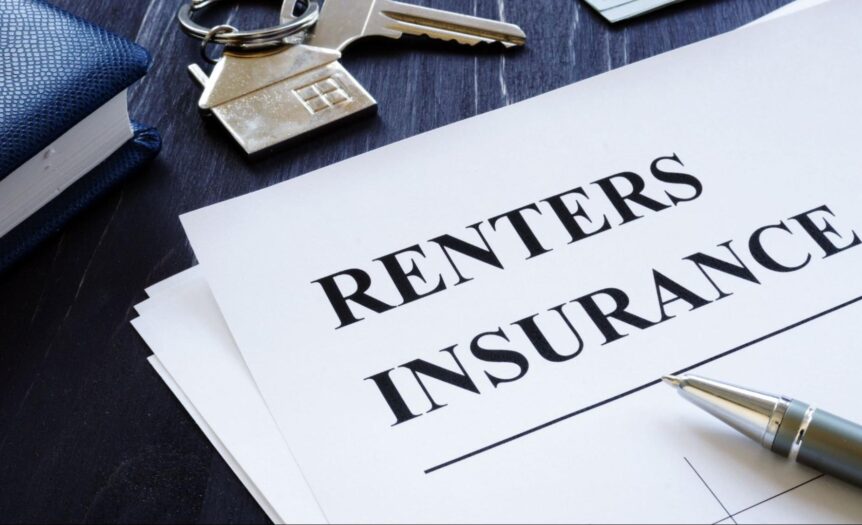Water damage is one of the most common and costly issues renters can face. Whether it’s caused by a broken pipe, a leaky roof, or an overflowing bathtub, water damage can lead to expensive repairs and significant loss of property. As a renter, you might wonder if your renters insurance will cover the damage caused by a water leak. Understanding your renters insurance policy and what it covers is essential to ensure you’re prepared in case of an emergency.
In this article, we will explore how renters insurance works, what types of water damage it typically covers, and whether or not it includes coverage for water leak damage. By the end of this guide, you’ll have a clear understanding of what to expect from your insurance policy and how to protect your belongings.
What Is Renters Insurance?
Renters insurance is a policy that provides coverage for your personal belongings in case of unexpected events such as theft, fire, vandalism, and certain types of water damage. It’s designed to protect renters by covering the cost of replacing or repairing damaged or lost items. Additionally, renters insurance can help cover living expenses if you need to temporarily move out of your rental unit due to an insured event, such as a fire or water damage.
Renters insurance typically has three main components:
- Personal Property Coverage: This covers your personal belongings, such as clothing, furniture, electronics, and other possessions.
- Liability Coverage: This protects you if someone is injured on your property and you are held responsible for the injury.
- Additional Living Expenses (ALE): This covers the cost of temporary housing and living expenses if your rental unit becomes uninhabitable due to a covered event.
What Types of Water Damage Does Renters Insurance Cover?
Water damage is a common concern, and renters insurance can cover certain types of water damage, but it depends on the cause of the water leak. Here’s an overview of what’s typically covered:
1. Water Damage from Burst Pipes
If a pipe in your apartment or home bursts and causes damage to your personal belongings, your renters insurance may cover the cost of replacing or repairing the damaged items. Most renters insurance policies cover water damage caused by plumbing issues, as long as the damage wasn’t caused by negligence or lack of maintenance on your part.
2. Water Damage from Firefighting Efforts
If a fire occurs in your apartment or building and the fire department uses water to put it out, renters insurance typically covers the water damage caused by the firefighting efforts. This is usually included under the “fire” coverage in your renters insurance policy, and you would be compensated for any belongings that are damaged by the water.
3. Water Damage from Malfunctioning Appliances
If a washing machine, dishwasher, or refrigerator malfunctions and causes water damage to your personal property, your renters insurance may cover the damage.

However, this depends on the circumstances and the cause of the malfunction. If the appliance was faulty due to lack of maintenance or care, you may not be covered.
4. Water Damage from Roof Leaks
If a roof leak leads to water damage inside your rental unit, renters insurance may cover the damage to your personal belongings. However, it’s important to note that renters insurance typically doesn’t cover the cost of repairing the roof itself—this would fall under the responsibility of the landlord. You’ll likely need to file a claim for the damage to your possessions, not the roof.
Does Renters Insurance Cover Water Leak Damage?
The question that many renters ask is, does renters insurance cover water leak damage? The answer depends on several factors, including the cause of the leak, whether the leak was gradual or sudden, and the specific terms of your policy. Let’s break it down:
1. Sudden and Accidental Leaks
Most renters insurance policies will cover water damage caused by sudden and accidental leaks. For example, if a pipe bursts unexpectedly, causing water to flood your living room and damage your furniture, your renters insurance will likely cover the damage to your belongings. The key here is that the leak must be sudden and not the result of long-term wear or neglect.
2. Gradual Leaks
On the other hand, water damage caused by gradual leaks is typically not covered by renters insurance. A gradual leak is one that occurs over an extended period of time, often due to wear and tear, such as a slow leak from an aging pipe or a roof that has been leaking for months. Insurance providers generally consider these types of leaks to be preventable, and therefore, they are not covered by most renters insurance policies.
If you notice a slow or persistent leak, it’s essential to address it as soon as possible to prevent further damage. Failing to repair the leak may also result in your landlord being less likely to cover the damage, leaving you with additional costs.
3. Water Damage from Floods
It’s important to note that renters insurance typically does not cover water damage caused by floods. If you live in an area prone to flooding, you may need to purchase separate flood insurance to protect your property. Flood insurance is a different type of coverage that specifically addresses damage caused by rising water levels, and it is not included in standard renters insurance policies.
4. Water Damage from Tenant Negligence
Renters insurance generally does not cover water damage caused by your own negligence. For example, if you leave the bathtub running and it overflows, causing water damage to the floor and nearby furniture, your renters insurance likely won’t cover the damage. It’s crucial to be mindful of how you use water in your rental unit to avoid these situations.
Steps to Take if You Experience Water Leak Damage
If you experience water damage in your rental unit, whether it’s from a burst pipe, a roof leak, or malfunctioning appliances, there are several steps you should take to ensure you are protected:
1. Document the Damage
The first thing you should do is document the water damage. Take photos or videos of the affected areas and your damaged belongings. This will be important for your insurance claim. If possible, make a list of the damaged items, including their approximate value.
2. Notify Your Landlord
If the damage is caused by an issue that your landlord is responsible for, such as a leaky roof or a plumbing issue, notify them immediately. They may be responsible for making the necessary repairs to the property itself.

In some cases, your landlord may also have insurance coverage for property damage, but it’s important to report the issue promptly.
3. File an Insurance Claim
Contact your renters insurance provider to file a claim. Be prepared to provide the documentation you gathered, including photos, a list of damaged items, and a description of the incident. Your insurance company will assess the situation and determine what is covered under your policy.
4. Take Steps to Prevent Further Damage
Once you’ve documented the damage and notified your landlord or insurance provider, take immediate steps to prevent further damage. This may include shutting off the water supply, using towels or buckets to catch the water, or calling a professional to repair any leaks. The quicker you act, the less likely you are to experience additional damage.
5. Consider Temporary Living Arrangements
If the water damage makes your rental unit uninhabitable, your renters insurance may cover additional living expenses. This includes the cost of temporary housing, such as a hotel or short-term rental. Be sure to check your policy to understand what expenses are covered and how long the coverage lasts.
Conclusion
In summary, does renters insurance cover water leak damage? It depends on the cause of the leak. Renters insurance typically covers damage caused by sudden and accidental leaks, but not gradual leaks or flooding. Understanding the details of your renters insurance policy is crucial to ensuring you are adequately protected in the event of water damage. Be sure to read your policy carefully and consider purchasing additional coverage, if necessary, such as flood insurance, to safeguard your belongings.
If you experience water damage, act quickly by documenting the damage, notifying your landlord, and filing an insurance claim. By taking these steps, you can minimize the financial impact of water leaks and ensure your personal property is covered.



